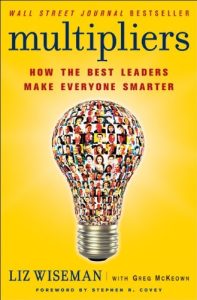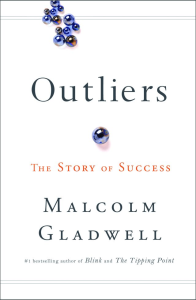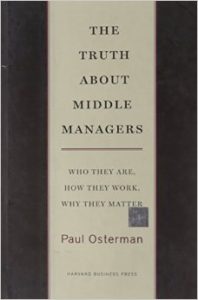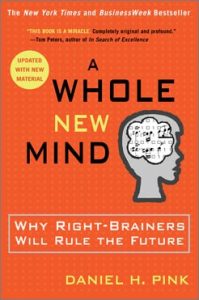Get report samples
A valid email is required in order to receive the samples.
A valid email is required in order to receive the samples.
SCANNER FREEMONT / Data Analyst
Freemont is responsible for the digital conversion of survey responses while adhering to strict quality standards set forth by its managers. Freemont began its career at TruScore in 1996 as a Data Analyst and quickly became pivotal to TruScore's success. As the years passed, Freemont has slowly matured into part-time Data Analyst while also holding many positions in the work environment including On The Floor, On The Empty Desk, and Hold The Door (AKA Hodor).
RON SACCHI / Master Coach
A former Operations Manager in the High Tech Industry, Ron Sacchi brings decades of leadership and management experience to the organizational development and the executive coaching arena. An energetic thought-leader with a track record of success in all areas of Human Capital development, he has consulted and coached managers in start-ups, joint-ventures, high tech, pharmaceuticals, and media. Because of his business acumen and creative approaches to behavioral change, he is respected in the HR community specifically for the ability to direct, motivate, influence and inspire leaders to improve performance.
Holding an MBA from Saint Mary’s College, Mr. Sacchi is also licensed in various management, leadership and psychological profiling tools.
PAUL CONNOLLY, PH.D. / Assessment Expert
Dr. Connolly’s major expertise includes organizational measurement strategies, survey design and questionnaire development, 360-degree feedback, leadership assessment and leadership development. He has extensive training and experience in psychometrics. He co-authored many 360-feedback surveys with Dr. Clark Wilson, one of the originators of the 360-feedback concept. He has also facilitated the development of surveys with well-known sports performance psychologist Dr. Jim Loehr who founded the Human Performance Institute. He has worked to create assessments with many thought leaders in the Human Resources field.
Dr. Connolly is the author or co-author of seven books and many articles. He is a licensed psychologist and member of the Association for Psychological Science and Society of Industrial and Organizational Psychology. He is a graduate of Holy Cross College and Fordham University, where he received his M.A. and Ph.D. in general psychology.
DR CHUCH MELTZER / Master Coach
Dr. Chuck Meltzer is a Master Coach and President of the SynTECGroup, an organizational development consulting firm. As an executive coach, he draws on his training at a doctoral level in psychology, direct senior management experience and management consulting with a wide cross section of industries. He has developed an extensive series of strategies to assist leaders in creating organizational wide and personal change. Dr. Meltzer has a decade of direct senior management experience and 20 years’ experience functioning within his consulting and coaching practice. His coaching approach is solution focused and time framed. Based on determined goals, a personally customized approach to the process has enabled his clients to realize sustainable change in a manner that allows them to enhance their effectiveness and success as leaders within their organization.
Dr. Meltzer is certified and a master trainer in several coaching assessment tools that he employs within his practice.
ERIN HIRSCHLAND / Master Coach
Erin is an organization development expert with nearly two decades experience serving organizations of all sizes across industries on a broad range of issues. Working with leadership teams, she helps articulate an actionable vision and corresponding values, connecting these to organizational strategy, execution and results. Her tools of choice include senior team retreats, one-on-one executive coaching and proven survey and related instruments.
Erin’s additional expertise includes designing employee selection systems, developing performance management tools that increase performance across the organization over time and employee and customer experience metrics. An effective facilitator and coach, Erin works with leaders and their teams to build trust, commitment and results.
She holds a Bachelor of Arts degree in Psychology from the University of California, Santa Barbara and a Master of Arts degree in Industrial/Organizational Psychology from the University of Colorado.
SONYA D HAMILTON / Senior Assessment Consultant
Sonya is a Senior Assessment Consultant at TruScore with over 24 years of experience designing and delivering 360 feedback solutions and providing 360-based coaching, training and interpretation.
Sonya has extensive experience working with Managers and Leaders, guiding them through the feedback and development journey and providing insights and direction to help maximize their impact within the organization. Sonya’s areas of expertise include 360-based coaching, 360 data analysis and interpretation, Train-the-Trainer certifications, facilitation, survey & questionnaire design, and the design and delivery of assessment programs.
Sonya has a Bachelor’s degree in psychology and a Master’s of Science degree in Industrial & Organization Psychology from Springfield College with a specialty in Counseling and Psychological Services. She is a Master Trainer for TruScore and the Clark Wilson Task Cycle surveys receiving a Certificate of Achievement in “How to Train a Trainer”. In addition, Sonya is certified to administer a variety of other psychometric instruments including employee engagement and organizational instruments as well as the line of Hogan Personality Assessments.
KAYLEY MOTZ / Assessment Advisor
Kayley draws on her extensive customer service background to provide clients with prompt, quality support. In her role as Assessment Advisor, Kayley works to ensure clients’ needs are being met. She assists in project set up and management, as well as processing and quality checking feedback reports. Kayley also aids in the execution of the day-to-day responsibilities of the production team, such as coaching session scheduling and tech support.
CRYSTAL HUGHES / Assessment Advisor
Crystal leverages her extensive background in Industrial-Organizational (I-O) psychology as she manages the day-to-day operational and tactical aspects of multiple and large scale projects for TruScore.
Crystal assists clients with setting up and managing feedback projects, and serves as the point of contact throughout the entire process. She quality checks feedback reports, and provides tech support when needed.
ELLIE SOLOMON / Assessment Advisor
Ellie manages project implementation for the entire 360 assessment feedback process and ensures that each client’s unique needs are met on time and in an efficient manner. Ellie consults with clients who use TruScore’s off-the-shelf Task Cycle® instruments as well as providing hosting solutions for clients using their own survey content, including custom processes and reports. She helps clients navigate through the TruScore® survey hosting software, having literally written the handbook that several clients are using.
She coordinates and implements all translation efforts, including soliciting bids, managing timelines, providing files to the translation companies, implementing translations for the web pages, and testing.
ULLA WESTERMANN / Software Engineer
Ulla uses her years of experience as a software engineer to maintain and add new features to TruScore's applications. She also helps with customizing feedback reports based on client needs.
HANK CURTIS / Business Development Manager
Hank manages and assists in the analyzing, planning, research, and development of TruScore’s objectives and strategic plans in order to achieve business opportunities, growth, and financial profitability.
Hank drives the expansion of TruScore’s direct sales, establishes relationships with TruScore’s clients, identifies clients, and keeps up-to-date on industry trends and client developments.
TAYLOR BRANTON / Bookkeeper
Taylor is responsible for managing payroll and employee fringe benefits programs, in addition to organizing company gatherings and outings. Taylor oversees day to day accounting needs as it relates to client invoicing, accounts payable, and general compliance requirements. She also has a hand in month, quarter, and year end reports and works closely with the CEO and CTO to furnish details necessary to make accurate business projections and decisions.
KURT BLAZEK / Design Director
Kurt uses a unique blend of strategic thinking with dynamic executions to create TruScore’s visual and interactive design. He is responsible for creating, evolving, and sustaining the company’s brand to internal and external stakeholders through multiple mediums. He oversees all of TruScore’s digital strategies, along with the implementation of social media tools and techniques.
Kurt leverages TruScore’s marketing and messaging information to identify, evaluate, and apply methods to maximize the effectiveness of the search campaigns across all of the major search engines. He tracks and measures the ROI of search engine rankings, direct print, and marketing websites.
JOSH SHEETS / Chief Operations Officer
Josh is responsible for all day-to-day aspects of managing the operations and various functional areas including business development, sales and marketing, client delivery, vendor relations, human resources, and IT.
Josh helps to ensure outstanding customer service, and the administration of long-term and day-to-day business processes that complement the delivery of high quality, innovative customer-focused survey tools, assessments and hosted survey offerings.
TOM KUHNE / Managing Partner and CTO
Tom joined TruScore in 1995 and has served in a number of roles, including Data Analyst, IS Manager, and VP & CIO. In his current role as Managing Partner and CTO, Tom is the driving force behind TruScore's technology vision for the present and the future. He manages all aspects of TruScore’s information systems, ensuring all systems meet the highest functionality and security standards.
Tom enjoys working hand in hand with clients and partners to make sure TruScore® delivers the technology and advancement that has become expected of it as a leader in the online assessment marketplace.
DEREK MURPHY / Chief Executive Officer
Derek joined TruScore in 1996 and has served in a number of roles, including Data Analyst, Operations Manager, and President & COO. In his current role as CEO, he is responsible for planning and implementing the strategic direction of the company. In addition, Derek is involved in product development and overseeing the day-to-day business operations for TruScore.
TruScore founder Dr. Daniel Booth, a pioneer in the field of assessment of leadership and management skills, served as a mentor to Derek for more than a decade. During this time, Derek became certified on TruScore’s full line of management and leadership assessments. He currently uses these skills to lead content debriefings with customers and partners on a regular basis.
In the 2011 movie Horrible Bosses, the main characters declare, “Our lives would be better if our bosses weren't alive!” Showing blatant hostility, trickery, sexual harassment, discrimination, and abuse, the bosses in that film are, if not complete caricatures of terrible managers, then certainly at the far side of reality’s spectrum.
Still, bad bosses do exist, and even if they aren't dragging a department or a company down completely, they are surely keeping the unit from truly thriving. While a good boss can inspire a team, instill loyalty, and motivate hard work by making each employee feel valued, a bad one can just as readily generate an environment of discord, cyclical abuse, mistakes, blame, and intolerance—and that supervisor can definitely create a revolving door.

Everyone I've spoken with about this book relates an experience working for the two types of leaders discussed in these pages. Around some leaders (the Multipliers) they feel confident about their abilities and are willing to work their hardest, whereas around other leaders (the Diminishers) they feel inept and are unwilling to contribute more than the minimum required to keep the job. Unfortunately, I heard many more stories about the problems of working for a Diminisher than the joys of working for a Multiplier. The focus of this book is understanding the difference between these two leadership styles and learning how to move from being a Diminisher to a Multiplier.
A Multiplier is defined as a leader who is able to understand and solve hard problems rapidly, achieve goals, and adapt and increase the team's capacity over time. A Diminisher is a leader whose team operates in silos, finds it hard to get things done, and despite having smart people, seems to not be able to do what is needed to reach goals.
The generational composition of the nation’s workforce is constantly changing, and, at certain times, it seems the landscape creates an entirely new snapshot. Such will be the case by 2020, when nearly half (about 46 percent, by most estimates) of the workforce will be comprised of millennials. Which is a particularly important statistic for today’s leaders, who are, by and large, boomers or gen Xers, with a few veterans still sprinkled in.
Making room for the next generation has often been fraught with some headache: each previous generation embraces different viewpoints and honors different values than the ascending one. Such is certainly the case these days, as millennials make their way into more and more offices, bringing with them new ideas, characteristics, and expectations. It can be a clash at times—“I think there’s a disconnect because older workers come from a time when you have one career for life and corporate loyalty, and millennials just want to make an impact on day one,” notes Dan Schawbel in a study he conducted in conjunction with American Express. A millennial himself and founder of Millennial Branding, a gen Y research and management consulting firm, Dan also points out that one of the best ways to bridge the divide is through effective communication, which includes managers’ setting expectations, particularly regarding how the employee can move through the ranks.
Running a business demands a varied set of important skills and the experience to make the most of these skills. The overall progress of your company depends on your ability to make sound decisions that will grow your business in the long-term by taking prudent and diligent steps in the short-term. One key to managing the success of your company lies in your ability to fill a wide array of roles that are essential to handling each aspect of your business at a level that yields progress. As your company grows and reaches further into the areas that will be instrumental in long-term growth, you will need allies within your company to help manage the expanding workload.
Delegating authority is a critical step every leader must assume in order to ensure all areas of your company’s pursuits are managed effectively and monitored consistently. No one person can do it all, and as such, delegating authority allows a growing business to meet the rigors of increasingly diverse avenues of business while not over-extending talent. Delegating authority is also an important ingredient in drawing out the best and most creative attributes of your managers. Once you have amassed a team of managers that are qualified to help you lead the way toward your company’s goals, delegating greater amounts of authority will enable you to use the combined talents of your managing staff toward a dynamic new direction for your company.

Are you as tired of thinking about the dire economy, war casualties, and the oil spill as I am? Do you want to read something that is somewhat related to work, but easy and fun, and you won't feel guilty about spending the time? If so, then I recommend anything by Malcolm Gladwell. This writer has an amazing ability to find patterns out of things that others miss, and his writing is entertaining and stimulating. He's the guy who brought us the concept of the "tipping point," which describes the point at which the momentum for change becomes unstoppable. He's written several books, all million sellers, and I chose to read Outliers for this review.
An outlier, according to Gladwell, is something that is markedly different in value from others in a statistical sample. He primarily focuses on the stories of people who have had great success, including Bill Gates. Gladwell looks underneath the stories to find that success is partially about individual striving, but it also includes luck, taking advantage of opportunities that are denied to others, talent and smarts, and lots and lots of practice.

Paul Osterman brings his academic perspective from the MIT Sloan School of Management to the issue of what is happening with middle managers today. Basically, he finds that middle managers are insecure in their jobs, more loyal to their teams than to the larger corporation, and like the work they do. None of these conclusions will be a surprise to people who work within corporations, but the data-driven analysis gives his words some weight.
One of the most intriguing discussions in his book is the history and perceptions of middle managers in the overall culture. Early in the twentieth century, advances in technology permitted cheap production on a very large scale. Middle management was the key actor that facilitated the remarkable growth and efficiency of the American economy. Without middle management's coordination of production and distribution, firms could not grow big enough to take advantage of the technological potential of mass production and low unit cost. In other words, middle managers were heroes at first.
Too often I have heard from managers and recruiters who are Boomers or Generation X that Millennials have an unrealistic, inflated view of their capabilities. On the other hand, many Boomers and Generation X have a deflated perception of their competencies. Is this generational?
There are studies that would support that Millennials have an inflated view of their capabilities. A study of the generational differences in psychological traits of college students by Jean M. Wenge and Stacy Campbell, (Journal of Managerial Psychology, Vol 23 No. 8, 2008) found that the Millennial generation has the highest scores of self esteem and narcissism of any generation. Comparing scores of college-aged students on psychological inventories between 1950 and into the 2000s, the authors were able to track significant changes in generations. By the mid 1990, the average “Generation Me” college student had a higher self-esteem than 71% of Boomers. Narcissism scores also raised significantly. The average college student in 2006 scored higher in narcissism than 65 percent of students in the early 1980s. Specifically, a significant number of Millennial college students responded affirmative to questions such as “If I ruled the world it would be a better place,” “I think I am a special person,” and “I can live my life any way I want.”
Taking the reins at one of the largest and most influential companies in history is an undoubtedly daunting assignment. Following in the footsteps of one of the most important figures in modern history only adds to the challenge. Satya Nadella, the man tabbed for taking Microsoft into a new era of influence and prosperity as CEO, brings a wealth of experience, a uniquely international perspective, and a leadership style that will be tested as he commands an employee base of over 100,000 professionals.
This transfer of leadership comes at a time when Microsoft faces challenges unlike any in the company’s storied history. With new avenues spawned from; a diverse array of tech platforms, the ever-expanding wireless and mobile markets continuing to explode across the marketplace, and a recent history of playing catch-up to other Silicon Valley upstarts, Nadella looks to carve out a bigger slice of market share for Microsoft with a fresh, new leadership style.
Satya Nadella is just the third of Microsoft’s CEOs and the first to be promoted to the helm having not been part of the founding of the company. Following his 1992 hire from Sun Microsystems, Nadella has spent 22 years with the Redmond-based tech giant in executive roles. Though Microsoft has seen its luster tarnished over the past decade, the company’s imprint on the PC market continues to dwarf all others. Still, the vast majority of PCs sold today, come equipped with the familiar Windows operating system platform. The company’s foray into the post-PC world is what continues to challenge Microsoft and will be a critical arena for Nadella and his staff to address.

Daniel Pink opens our minds and shows us new possibilities in this entertaining book about how the right brain can contribute in a world that has long been devoted to left brain thinking. He begins by reviewing how the two halves of the brain work: the left hemisphere is sequential, analytical, verbal, and detail-oriented, while the right hemisphere processes information simultaneously, specializes in context, understands metaphor and nonverbal cues, and synthesizes the big picture. Pink's thesis is that right-brain directed thinking, so often disdained and dismissed, will increasingly determine who soars and who stumbles.
He explains the reasons behind the shift from left to right brain dominance: abundance, Asia, and automation. In our abundance, we acknowledge that our left brains have made us rich. We can buy just about anything we want at a minimal price. This puts a premium on the aesthetic. For business, it's no longer enough to create a product that's reasonably priced and adequately functional. Now it must be beautiful, unique, and meaningful to be competitive.
Change is good…except when it’s bad. One of the most relied upon adages in any endeavor is that at some time things will change. Oftentimes change is visited upon a company by unforeseen outside influences; a market contraction, an event that disrupts the supply chain, or the sudden departure of valuable talent. Other times, change within an organization can come voluntarily, as a necessary means for survival or to move in a direction that will bring future prosperity and a strengthened position within a market. In either case, leadership during a time of transformation will make the difference between a successful shift and a disastrous one.
Quality leadership requires managers who are not only prepared and adept at handling matters during the sublime, but leaders who are agile and composed enough to navigate through turbulence. The keys to effective management during times of transformation are varied, with each leadership trait playing a critical role in the effective stewardship of the company through the turmoil of change. To ensure your company has what it takes to survive and even thrive through the adversity that transformation can bring, pay diligent attention to a few crucial leadership attributes that will serve you well and lead your company back to a more serene environment.